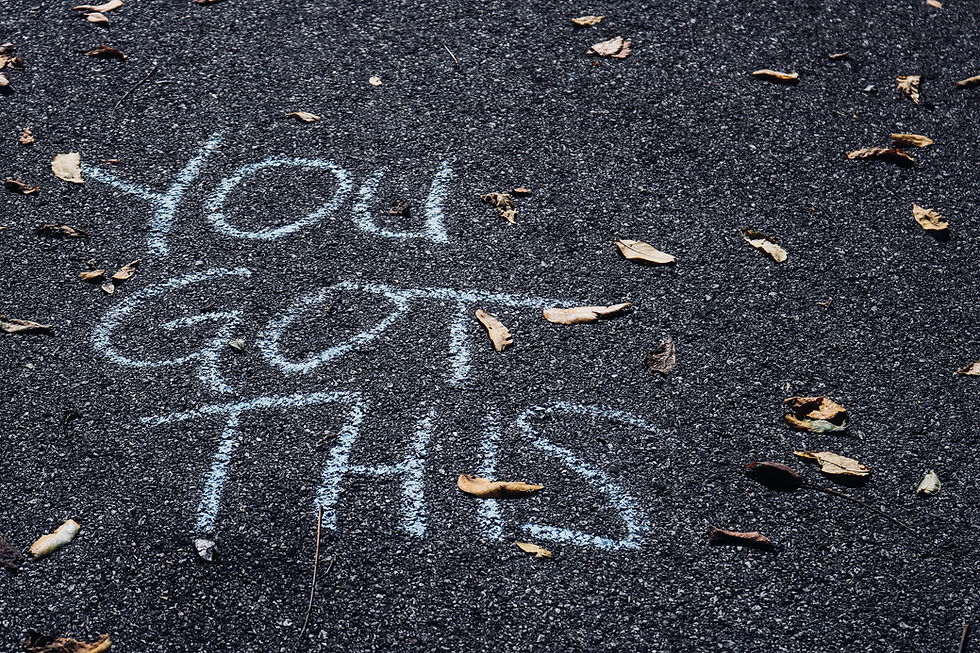As a psychology major, I'm constantly learning things that challenge my world view and make me rethink my perspective on various topics or situations. This is one of the things I love about my career path; it's constantly expanding and opening my mind to considering different aspects of the human experience-the topic on every human's mind. And because this is a genuine interest of mine, I explore other sources of information and look at different angles, especially when it comes to more recent psychology publications and conversations happening in the world right now.

Most recently, I've been reading a book called, Useful Delusions: The Power & Paradox of the Self-Decieving Brain by Shankar Vedantam and Bill Mesler. So far it's been a fascinating read about the truth behind the power of our brain, and how it distorts reality for the benefit of our survival and success in reproduction. This can apply anywhere from looking at relationships with rose-colored glasses, to telling yourself that, "everything is going to be ok," to pretending like you're the most confident person in the room until you feel it-the fake it 'till you make it kind of deal.
It's shocking to think that having a positive outlook on a situation, no matter

how bleak, will mentally and physically affect how someone copes with that situation, which can directly impact the outcome. To clarify, I'll give a reverse example-how having a bad attitude and negative outlook can negatively impact a situation. The simplest version I can give is preparing for an exam, which may or may not be influenced by the fact that I'm currently supposed to be preparing for a cumulative final exam in my social psychology class-the last final of the semester. If I were to focus on how difficult it can be to study for and remember such a high content load, I might give up on the idea of making a good grade, and just settle for trying to pass. This would affect the way that I prepare and the attitude I have going into the test, in turn affecting my performance during the exam itself, such as rushing through or not taking the same consideration when answering questions. It could even bring my confidence down in how much of the information I know, causing me to second guess myself on things I wouldn't have questioned otherwise. Just imagine, if a negative attitude could have such a negative impact, how much of a positive impact would a positive attitude have in the same situation? Hopefully I'll be able to see the benefits by the time I take my final exam this tuesday!

Either way, the brain gives meaning to the phrase, "nothing is set in stone." Continuing to use myself as an example to make my points, consider my depression. It's recurring, with a pattern that took hold a couple years ago, and when I really started to notice it, it was disheartening to think that I would have to deal with that set pattern of mental distress that it looked like it would be on paper. Cut to today, I've been very dedicated to reframing any negativity and converting it to positive energy; I've been focused on telling myself, "everything is going to be ok," even if I can't be totally sure. Combined with a renewed focus on living as healthy of a lifestyle as I can, and being well-rounded in that way, I have been lucky enough to be experiencing real differences in my mental health. The mind works with the tools that it is given, and it's amazing to be able to see positive changes happening in the long run, when in the past, positive changes seemed unlikely with the information that I had at the time.

I'm still learning so much, and I hope to continue to learn for as long as I am able, but for now I think one of the most useful lessons I've learned is the power and usefulness in positive delusions. And ofcourse, with great power comes great responsibility-it is no secret the dangers that delusional thinking can carry.
Mel Robbins is another self-help author I enjoy reading who focuses on the psychology, the brain, lifestyle choices, and the concept of doing things even if you don't want to, even it scares you, if it's

something you need to do in order to get what you want. My favorite book of hers that I've read is, The High Five Habit, which is all about giving yourself the love you need even if you're not in the place you want to be in life. She also has a podcast that she uses to talk about similar topics in the genre of self-improvement which is also very interesting to listen to, and one of her recent episodes is about the concept of synchronicities. This is a little different from the type of 'delusional thinking' I've been talking about, but arguably just as important to know and be aware of as a tool to use on the way to success, however you happen to measure that. It's definitely a topic I would like to look into more, but to summarize so far, from what I can tell, it can be a very beneficial thing to assume, and live life as if, you have more control over the universe and your environment than one might initially assume. It's all about mindset! I'm excited to write more about these cool and interesting things I'm learning, and I highly recommend checking out the books I mentioned above.
Until next time,
The Art Guy

Comments